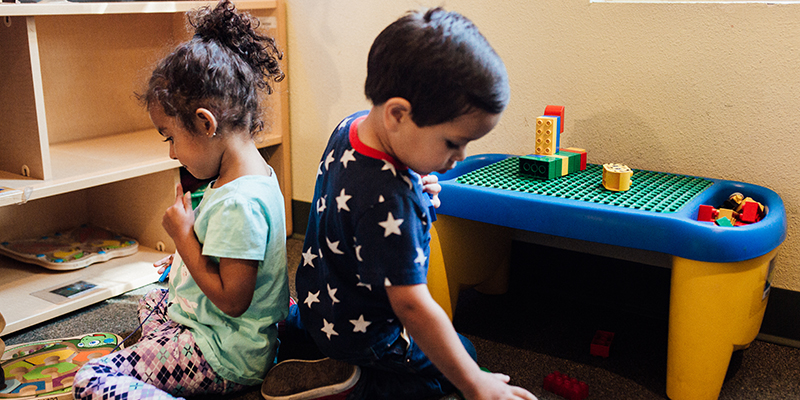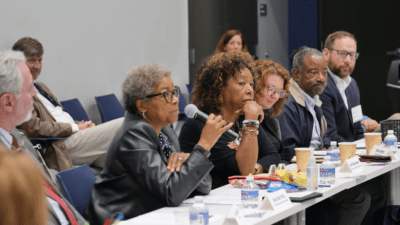In Brief
- In autumn 2018, National League of Cities (NLC) brought together city leaders and early childhood stakeholders from 13 cities to discuss strengthening early care and education systems.
- NLC identified eight elements of an equitable early care and education system that city leaders can use as a framework.
- National League of Cities (NLC) is a W.K. Kellogg Foundation grantee working to engage and spur municipal and city leadership, and build a national movement around early childhood systems development and implementation.
Why This Matters
At the W.K. Kellogg Foundation we believe that in order for children to thrive, their families need to be able to provide for them and their communities need to be equitable places of opportunity.
The National League of Cities’(NLC) Institute for Youth, Education and Families has worked with 13 cities across the country to design responsive and supportive early childhood systems and policies that meet the needs of young children and their families. Over the past 20 years, NLC has learned that effective and equitable alignment process begins with a commitment to work across sectors to assess current needs, identify shared goals and adjust actions in a highly coordinated manner.
Easier said than done, right?
Thankfully, the NLC has identified eight elements of an equitable early care and education system that city leaders can use as a framework.
- Multi-sector partnerships. Public and private sectors can work together to ensure the community has the policies, resources and infrastructure for creating an aligned and equitable early care and education system.
- Data-driven decisions. A shared system for data collection, analysis and reporting informs the decisions of all stakeholders.
- Family engagement. Families are fully engaged partners and cities foster relationships that fully engage families and children in successful, equitable early learning experiences.
- Equitable access. All families have access to affordable, diverse, high-quality early care and education environments.
- Coordinated continuum. The continuum of care in each community is aligned and offers developmentally appropriate care and education to its children.
- Professional development and support. The early learning workforce is elevated and valued for its contribution and is appropriately compensated, trained and supported to give high-quality learning experiences to all children.
- Sustainable resources. Strong, sustained and coordinated community support on behalf of children and families ensures sufficient resources and funding.
- Community participation. An equitable early care and education continuum is a priority for all elected officials and community stakeholders.
the opportunity
Want to learn more? Take a look at the NLC’s handy infographic or dive into the full framework.








Comments